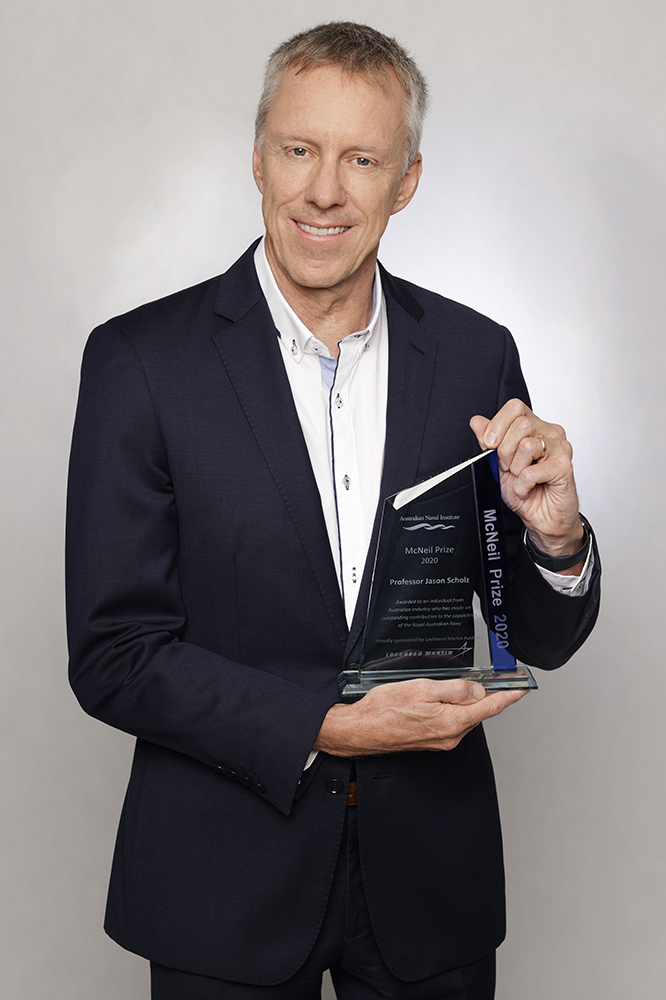
By Professor Jason Scholz, Chief Executive Officer, Trusted Autonomous Systems Defence CRC
The delivery of disruptive AI technologies and innovations to Defence through research and development isn’t easy. To understand why, we consider the drivers of the past and how warfare is transformed by computational intelligence in this ‘age of free silicon’. Defence platforms have typically been complex to ensure they are capable in battle, large in order to carry an array of defences to keep people alive, and few because they are so expensive we can’t afford more and as a result we can’t afford to lose them. However, we are at a tipping point, the application of AI, miniaturisation, digital design, and low production costs are witness to disruptive changes towards the Smart, Small and the Many. This transformation in Defence will be described, along with some of the new challenges this brings. Examples of the ‘smart, small and many’ developed through the Trusted Autonomous Systems Defence Centre in Australia will be highlighted. These will include “Cognitive ISR” for fully-autonomous coordinated unmanned aircraft missions in denied areas, and “Fire Fly” a self-organising high-altitude balloon constellation for locating wildfires and providing communication for responders. Key to this future is the legal, ethical and regulatory assurance of systems. One area will be described where AI can assist in response to situations of laws of armed conflict (LOAC) concern; such as a weapon system capable of identifying a red cross on a target and autonomously calling off a strike.
Biography:
Jason is the Chief Executive Officer at Trusted Autonomous Systems and also contributes research leadership in the Decision Sciences. His formal background in Electrical and Electronic Engineering (Bachelors Degree and PhD), and over 30 years experience in AI and decision-making covering all areas of Command, Control, Communications and Intelligence (C3I). Jason was Exchange Scientist with the US Air Force Research Lab in New York state. He was research leader for the Vital Planning and Analysis (VIPA) system which saved Defence well over $120m and is in operational use. Prior to commencing with Trusted Autonomous Systems, he was responsible to the Chief Defence Scientist for the Strategic Research Initiative in trusted autonomous systems, and to the five-eyes community as chair of the Autonomy Strategic Challenge which culminated in 2018 in Autonomous Warrior 18, the largest trial of autonomous systems in air, land, sea environments ever conducted. Jason is a graduate of the Australian Institute of Company Directors and a tenured Innovation Professor with RMIT University. Jason is passionate about building sovereign capability for the Nation, and ensuring the high-impact research, development and innovation of the Centre transitions for operational use by the ADF. In 2020 Jason was awarded the Australian Naval Institute Mc Neil Prize presented annually to “..an individual from Australian industry and academia who has made an outstanding contribution to the capabilities of the Royal Australian Navy”.